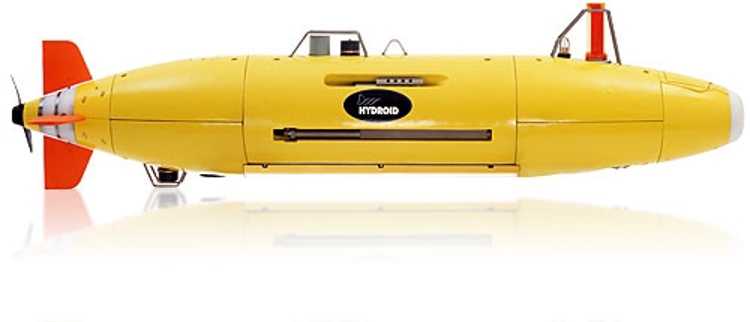
Hydroid personnel will participate in the initial test cruise, which will mobilize later this calendar year out of Las Palmas, the Canary Islands and Spain. The system will be used on various German research vessels. The initial test cruise will be conducted with the system installed on the German Research Vessel, Poseidon.
Hydroid was awarded the USD 3,200,000 contract one year ago. IFMGEOMAR conducts exploration of the world’s oceans, including missions that study the geology of the seafloor bottom and maritime meteorology. The institute plans to use the deep-diving REMUS 6000, Hydroid’s versatile AUV designed to operate in depths ranging from 25 meters to 6000 meters, to autonomously carry a payload to great depth in order to measure ocean water characteristics and map the seabed. IFM-GEOMAR will use its REMUS 6000 to further the study of volcanic and tectonic processes at mid-ocean spreading ridges and to understand how these processes influence hydrothermalism, a process where superheated seawater circulating within the newly formed rock is eventually ejected into the overlying ocean as buoyant hydrothermal plumes. Measurements of the seafloor and water column at high spatial and temporal resolution are required to conduct this research. Due to its autonomous, bottom-following operational mode, the REMUS 6000 is able to carry a payload to great depth in order to measure ocean water characteristics, including conductivity, temperature, chemical composition, map and image the seabed through bathymetry, side scan sonar, magnetics, gravimetry and photography. The REMUS 6000 system has a basic configuration consisting of vehicle, swath bathymetric, sidescan and sediment-penetrating sonars, optical backscatter sensor, navigation units, communications equipment and the facilities to transport, deploy, service and maintain the vehicle when at sea. Users of the REMUS 6000 can acquire or adapt specialized sensors and cameras to this configuration to suit their particular needs